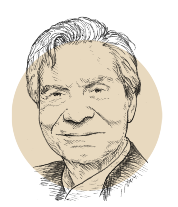This incursion of an American uprising in French streets is not without precedent. In 1953, the French demonstrated their support for the Rosenbergs before they were sentenced to death for espionage. However, this happened through the sole initiative of the French Communist Party, which had close relations with the Soviet Union. At the time, this cause also appealed to what was then a broad anti-American sentiment. In 1967, the French then protested against the Vietnam War, although they had shown little indignation toward this same war when it was led by the French colonial army. This synchronization with American uprisings quickly gave way to the “events” of May 1968, a singularly French happening infused with a kind of poetic idealism but with no definable political agenda.
The eruption of Black Lives Matter is of another nature, beyond the expression of solidarity with George Floyd and what he symbolizes in the United States. For the first time, the French find themselves confronted with the question of Black rights in France, and with the problem of French racism in general. What’s more, the debate has been pushed out of academic ivory towers and onto the streets. George Floyd also has his French equivalent, Adama Traoré, the son of Malian immigrants, who died in 2016 at the hands of the police under circumstances surprisingly similar to the death of George Floyd. His sister Assa, a schoolteacher who protested the killing from the beginning, never accepted that the police and the justice system were innocent. Having battled more or less alone for the last four years, she is now at the center of the protest.
This Floyd-Traoré equivalence has been decisive in the rise of Black Lives Matter in France. But are the French police racist, or even hostile to the two main minorities of recent immigration – Arab-Muslim and African? The latter group, mainly from Senegal and Mali, is also Muslim, but practices an Islam distinct from that of North Africa. The question of racial discrimination against Blacks had not been seminal in French politics until now, since France is supposed to consider its people as citizens whose ethnic origin, culture, and religion cannot legally be recorded in a census.
In France, race is supposed to be invisible; no one is supposed to belong to a community other than the nation, and “communitarianism,” or identity politics, is denounced on both the right and the left as a betrayal of the French ideal. The only publicly accepted religion, which in theory is not a religion, is laïcité, a sort of atheism of the Republic; it is in the name of this laïcité and a theoretically colorblind idea of citizenship that all public religious expression, such as the Islamic veil, is prohibited in schools. If religiosity is expressed too visibly, if one identifies too much with one’s ethnic community, one is soon suspected of moving towards the “American model.” “Communitarian” is an insult, and Macron’s government is considering a law that would ban “separatism,” a thinly veiled allusion to Islam and to African identity.
Today, French laïcité is besieged by Black Lives Matter. But should France warm to communitarianism by recognizing that races indeed exist, that not all French people are white or Christian, and that Muslims and Blacks are French in their own way, with memories and experiences that are sometimes painfully steeped in racism and discrimination? Those in France who support Assa Traoré’s fight are not looking to do away with the French model but rather demand that reality be acknowledged, that laïcité, to a large extent, has always been a myth. In the past, supposedly secular France has been anti-Christian, anti-Semite, hostile to immigrants, and is now anti-Muslim.
The intellectual founder of Black Studies in France, French-Senegalese historian Pap Ndiaye, is far from being an extremist. Instead, since the 2006 publication of his foundational book La Condition noire, he has merely asked that the African contribution to French civilization be recognized. It happens that Pap Ndiaye symbolizes the intricate interconnection between French and American versions of the racial ferment. While studying at the University of Virginia, he discovered his Black identity and the Black Studies he would later import to France. Might Pap Ndiaye not find in Emmanuel Macron an objective ally? In a speech that broke with the official image of the French colonization of Algeria and Black Africa, the French president stated several times that, far from carrying out a civilizing mission, this colonization was a “crime against humanity.” The African-French now find themselves in a situation that is historically comparable to that of African-Americans, with colonization appearing as the equivalent of slavery.
Let us remember, finally, that in this transatlantic circulation of ideas, Black Studies in America were strongly influenced, almost determined, by French intellectuals, sociologists, and philosophers such as Jacques Derrida, Michel Foucault, and Pierre Bourdieu. This critical French school was acclaimed on American campuses before returning to its native country. Yes, George Floyd and Adama Traoré are part of the same struggle and pose the same question: How can we preserve the unity of democratic nations while taking their cultural diversity into account? In the United States, this question is overly examined to the point that it paralyzes all other debates about the best economic policies, healthcare system, and schools. In France, the question is not asked enough. Still, in both cases, the issue of diversity is crucial and failure to address it will not make it disappear.
Editorial published in the September 2020 issue of France-Amérique. Subscribe to the magazine.












